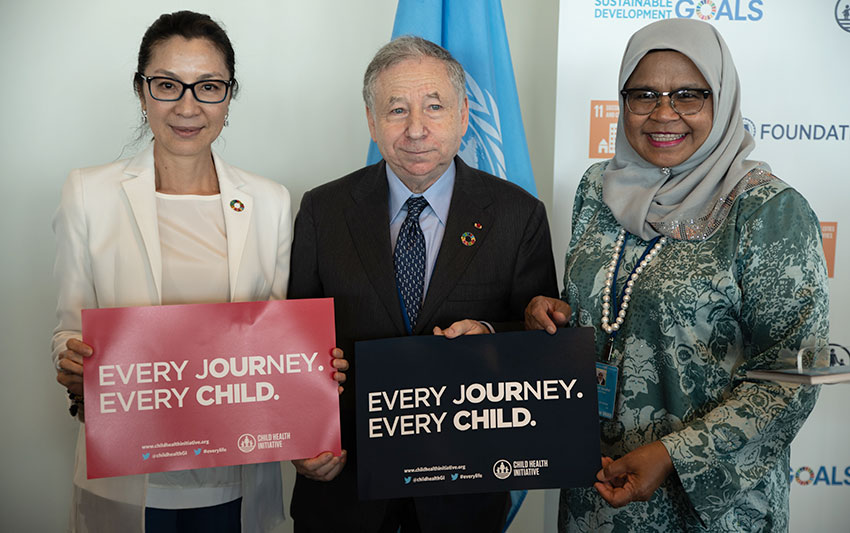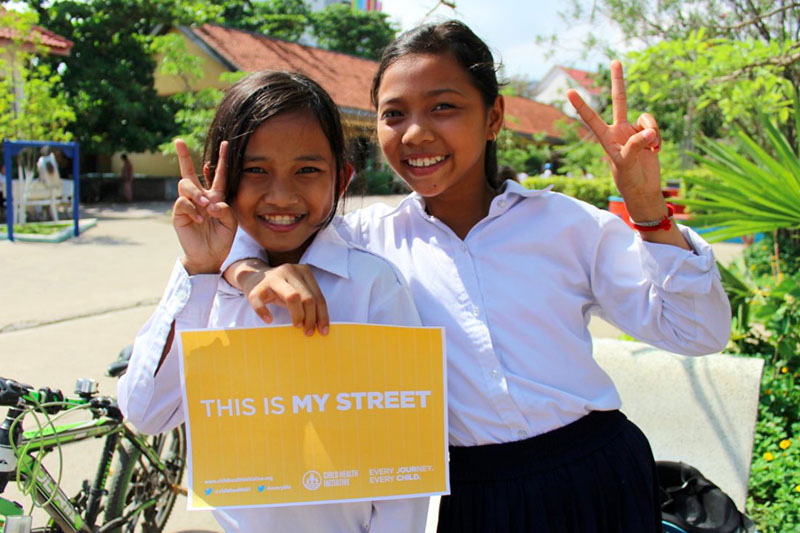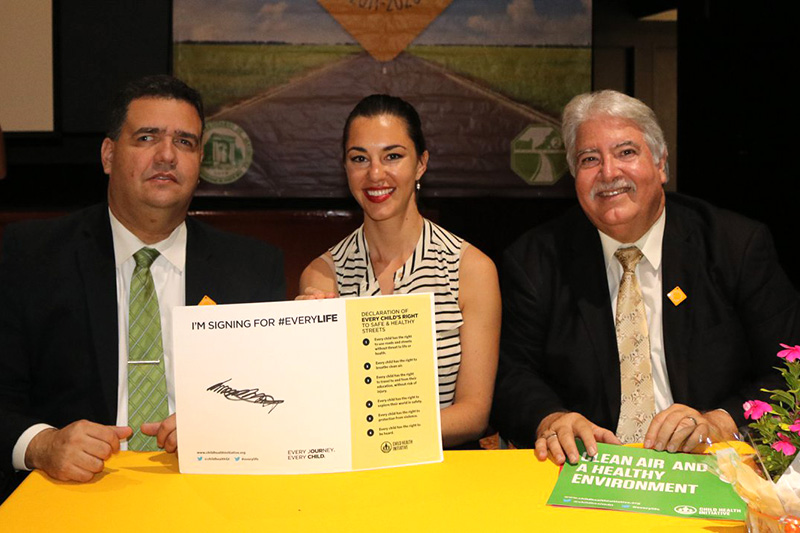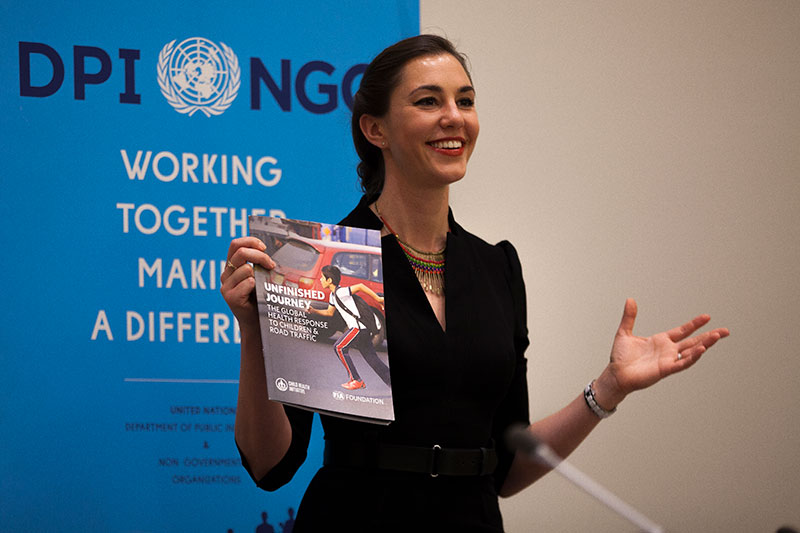Lusaka Mayor calls for action on 3,500 Zambian road deaths
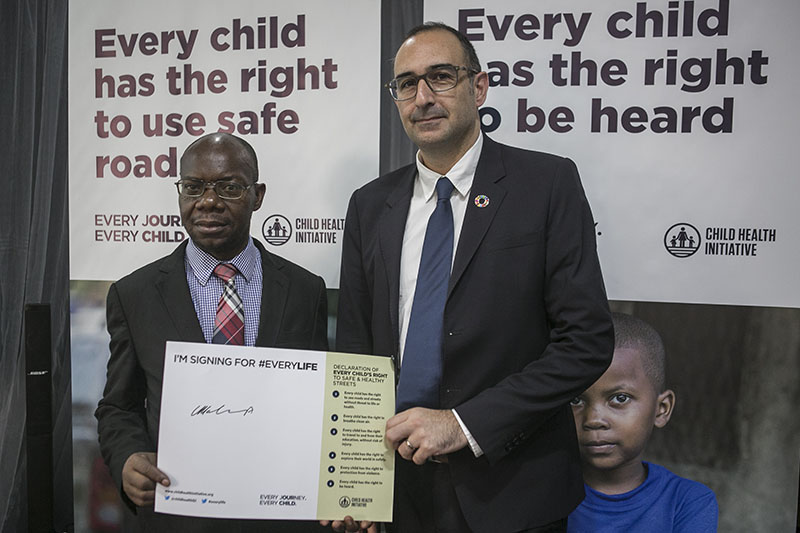
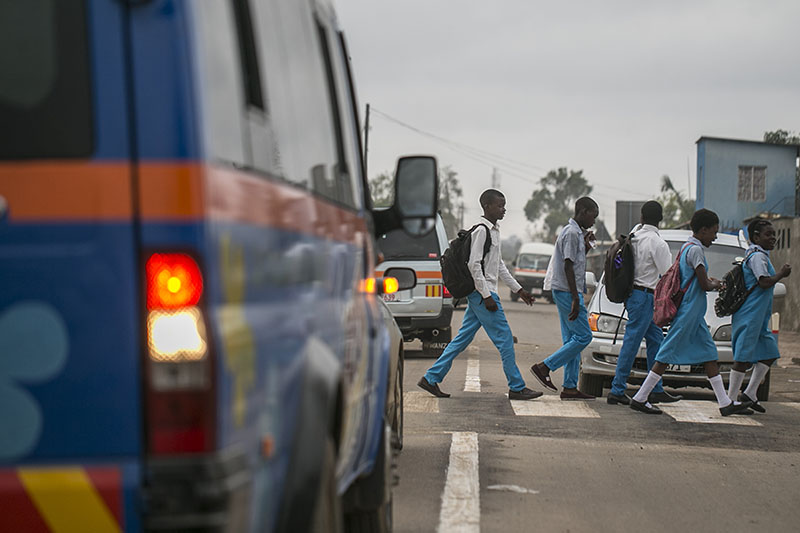
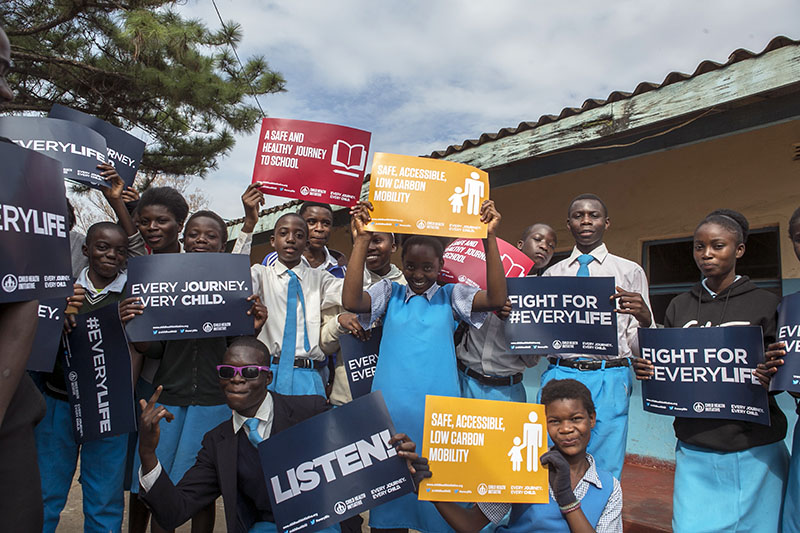
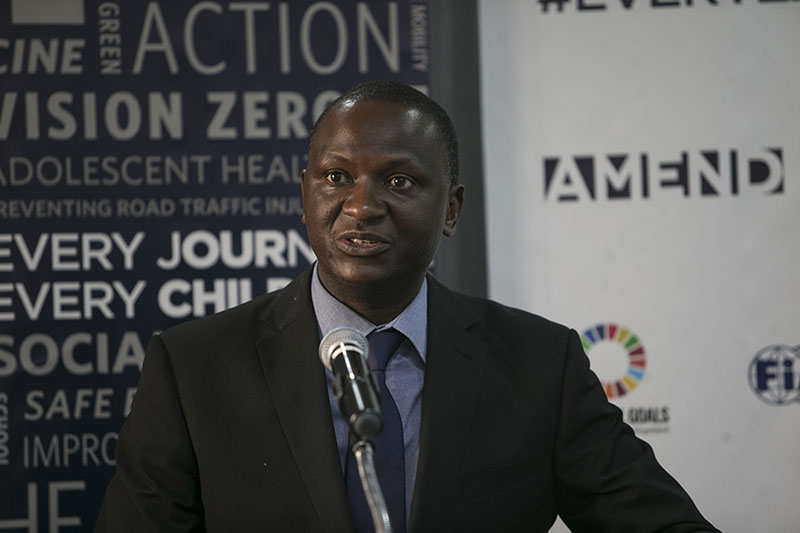
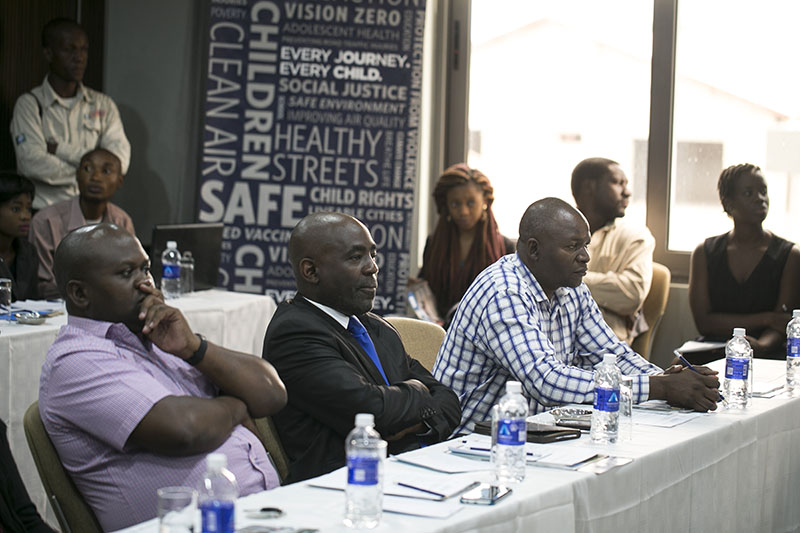
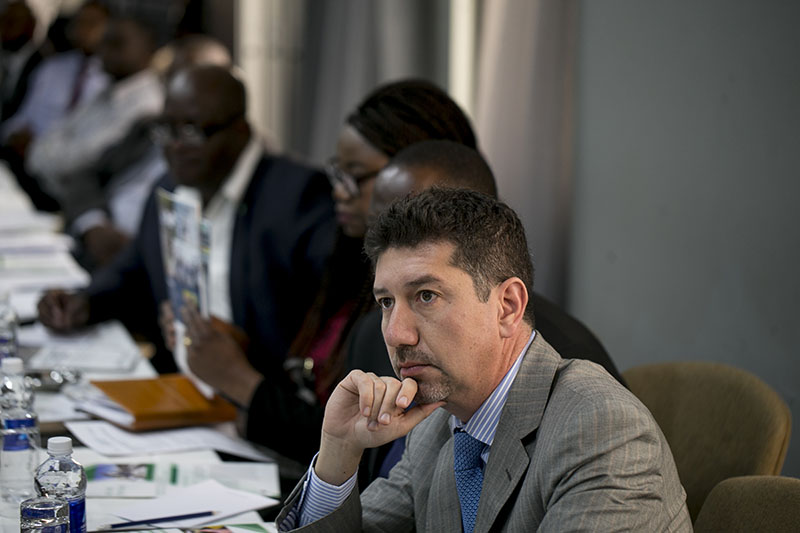
The Mayor of Lusaka, Wilson Kalumba, has signed the Declaration to Every Child’s Right to Safe and Healthy Streets, in a bid to protect children as the most vulnerable road users across Zambia.
Every year, 3,500 people die on Zambia’s roads, according to World Health Organisation estimates. To protect the population, road safety policy and infrastructure must be developed to create safer streets, especially given the Zambian population is expected to increase by 60% in the next 15 years.
The Declaration is part of the #EveryLife campaign, which calls for safe and healthy journeys to school for every child by 2030; a policy commitment produced by the Child Health Initiative (CHI) - a coalition of the world’s foremost child rights agencies and sustainable mobility organisations.
At the high level conference attended by Government officials and a coalition of leading international charities, life-saving projects were showcased at the CHI conference by Amend, iRAP, FIA Foundation and the Zambia Road Safety Trust (ZRST).
While urbanisation and car ownership are rapidly increasing, the majority of children still make their most important journey of the day on foot; with little infrastructure to support children walking to and from school, many are killed or seriously injured exercising their right to education. The poorest children are disproportionally affected, suffering from the combined health effects of poor urban planning, dangerous roads and polluted air.
Amend and ZRST projects at schools across Lusaka, are benefiting from small infrastructure adaptions which have been shown to reduce injury by up to 26%. Small infrastructure changes at the Vera Chiluba Primary school such as bollards, speed humps, and footpaths have been funded by the FIA Foundation and put in place to protect children from fast-moving traffic.
Justin Kabwe Primary School, where four children have already been injured this year, now benefits from traffic calming measures, which have also been shown to help mitigate other factors, such as poor air quality, that disproportionately impact child health. iRAP assessed the school using their new star rating system app; once the new infrastructure was implemented the iRAP rating for the school was transformed from a 1 start to 5 star school for safety.
Mayor of Lusaka, Wilson Kalumba, said: “Road safety is the responsibility of each and every one of us. We must try to make people more aware and sensitive to these matters, so that our society can move together towards a safer, healthier future. We must put safe infrastructure in place for all road users, child pedestrians included. The police, RTSA and citizens must join forces to tackle this urgent problem.”
Amend Executive Director, Jeffrey Witte, said: “Africa has the world's highest road traffic injury rates, but it also has the world's lowest vehicle ownership rates. As the continent follows Zambia's lead in developing economically, more individuals and businesses will take to the roads to follow opportunities and realize dreams. This is a wonderful thing, of course, but more people in more vehicles has the potential to mean more road traffic injuries and more risk from pollution, especially for Africa's most vulnerable road users.
“Research shows that the vast majority of children in Zambia walk to and from school, putting them at risk of road traffic injury and from air pollution. The good news is that we all know how to keep children safe and healthy on their journeys to and from school. And that's why we are here in Lusaka today: to bring together all the important people needed – from the government, civil society, and the media – to implement known solutions to keep Zambia's children safe and healthy.”
FIA Foundation Executive Director Saul Billingsley (pictured with the Mayor of Lusaka, Wilson Kalumba, above) said: “Sub-Saharan Africa needs a step change in approach to protecting and providing for pedestrians, and particularly children. Children on the continent are already twice as likely to be killed in a road traffic collision as anywhere else in the world. With a population boom in young people and rapid motorisation acting now to provide safe footpaths and crossings, and to reduce traffic speed, in urban areas is vital. Our #EveryLife campaign is calling for this step change, and Zambia can lead the way.”
